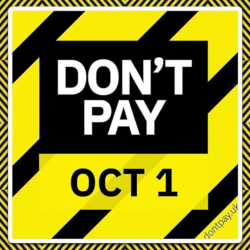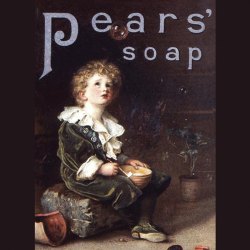Does our industry need more rogues?
I have, for a while now, been intrigued, confused and slightly annoyed by the industry’s obsession with ‘rogues’ or roguishness.
Whether it be rogues, rebels, troublemakers, rule breakers or (eek) ‘pirates’ this language seems to have totally infected communications. I believe this to be unhelpful at best and possibly toxic at worst, for a few reasons.
Now, I think I know what people mean by it (and understand the intention behind it), but I happen to think the language itself might be responsible for some of the worst excesses and behaviours that have made advertising a somewhat unsavoury and unwelcoming industry for many over the years.
I don’t think we should be encouraging traditional traits associated with the ‘rogues’ of the past. ‘Rogue’ is often a euphemism for wrong, in the same way that ‘character’ is a euphemism for annoying and ‘polarising’ is a euphemism for twat. I also don’t think that we should all be breaking rules for the sake of it just so that we can try and look like kwaaaaaaazy rebels.
Sorry to sound boring but rules are often there for a good reason. Rebel is often simply a self-anointed term for a slightly tiresome attention seeker. Pirates? Don’t get me started on that one.
I don’t believe that pirates in any form should be aspired to by anyone, in business or in life. Modern day piracy isn’t something that has anything either laudable or aspirational about it. Historical pirates were, for the most part, a collection of thieves, liars and sex criminals. The worst excesses of their behaviour make the Presidents Club seem like the Disney Club.
I happen to think that the (mis)interpretation of the terms rogue or rule-breaker might also be a huge reason why agencies are no longer represented in the boardroom and have been replaced by more ‘grown-up’ thinkers from consultancies or private equity advisors. After all, it seems to suggest a childish disregard for conventions or agreed codes of conduct. And I suspect that the CEOs of large companies don’t really want to invite that kind of attitude into their organisation.
I think we need to take a step back
To really ask ourselves what we mean by these terms. Especially as we seem to have so many rule-breakers, troublemakers and rebels that to be a conservative toe-er-of-the-line would probably be a more differentiated positioning!
I don’t think we need more rogues. But I do think we need to encourage rogue ‘thinking’ – if by that we mean new, different, original and creative approaches to problem solving. This is what Mick Mahoney and I wrote about in The Creative Nudge — that the key to success in business and happiness in life comes from doing things that are new and innovative. But this doesn’t mean rule breaking for the sake of it or acting like children when it comes to solving serious business issues.
Now at this point it is worth mentioning that rogue behaviour bordering on the criminal can be an indicator of future success! The National Bureau of Economic Research in the US published data in 2013 that showed that successful businesspeople (especially entrepreneurs) did over index on rule-breaking behaviour in their youth. Behaviour defined as:
“Aggressive, risk taking, disruptive” [behaviours, such as] skipping school, use of alcohol and marijuana, vandalism, shoplifting, drug dealing, robbery, assault, and gambling.”
But I’m not sure this is something we’d want to encourage in the workplace. Especially if want to encourage or facilitate diversity and inclusion.
So, my plea would be for people to certainly be different and innovative. To shun the sea of same in language and behaviour and to make sure we act in new and original ways. But I think we need more intelligent creative thinkers but less self-appointed “nutty” rebels running about setting fire to the metaphorical curtains in the name of troublemaking.
Rogue thinkers change the world for the better. Rogues just irritate and annoy.
More of the former, please.































